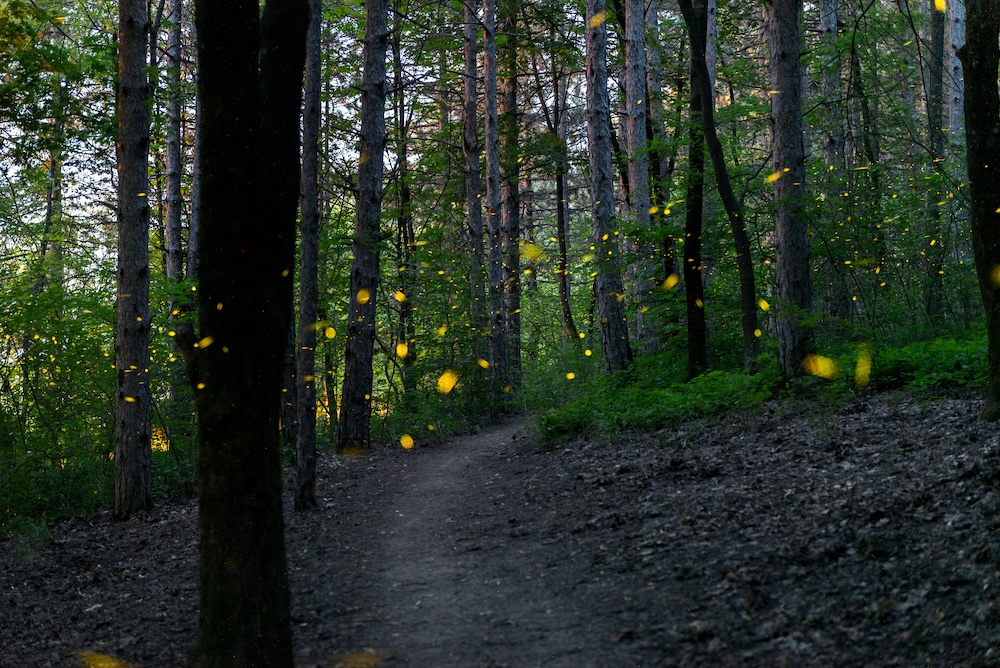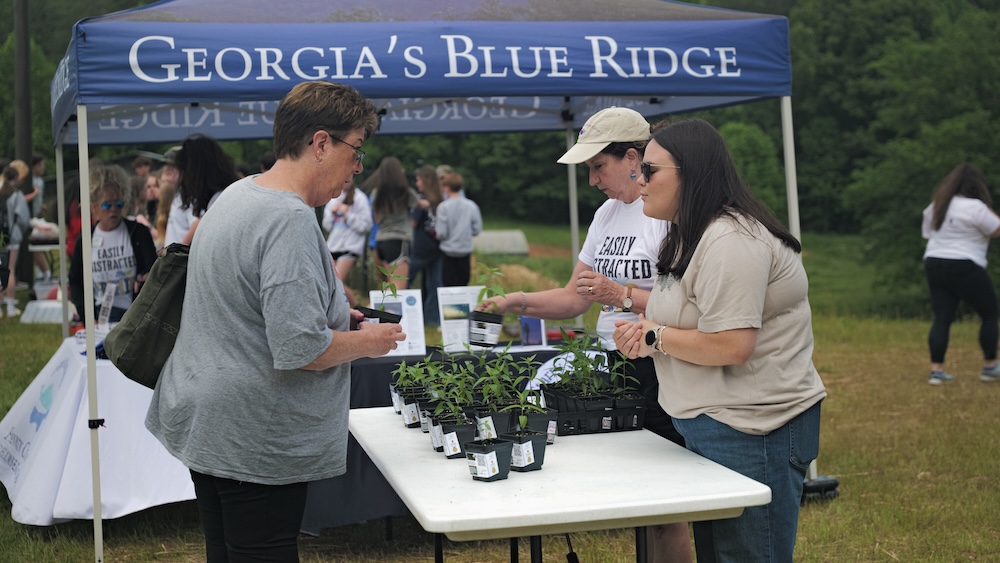
As dusk settles over tall summer grasses in a quiet meadow, a magical scene unfolds as fireflies glow with the approaching darkness. The luminescent display is courtesy of male common eastern fireflies (Photinus pyralis), also known as “big dippers,” who flash their characteristic “J-shaped” light patterns to attract nearby females for mating. This enchanting scene has become the focus of a partnership to raise firefly awareness through a comprehensive conservation effort in Fannin County, a mountainous area known for tourism along Georgia's border with Tennessee.
Georgia is home to at least 50 known species of fireflies, many of which are found in Fannin County. In addition to feeding on common garden pests and acting as pollinators, fireflies hold economic value as eager nature lovers seeking a natural light display can boost eco-tourism. Public awareness aids conservation efforts and fuels demand for educational programs throughout the county.
Eco-tourism and firefly conservation
For nearly a decade, Becky Griffin, school and community garden coordinator for University of Georgia Cooperative Extension, has championed pollinators and beneficial insects like fireflies, raising awareness of their importance through the Great Southeast Pollinator Census.
Griffin said there has been a general lack of awareness of the importance of light control at night to protect fireflies. Colloquially known as “lightning bugs,” fireflies are bioluminescent beetles whose light patterns are used, in large part, to find a mate during the dark hours of the night.
To showcase its dedication to preserving these captivating insects, Fannin County made a special proclamation to establish July 2 as Fannin County Firefly Day, coinciding with World Firefly Day and International Firefly Week. Local businesses, artists and community organizations have joined the effort as they gear up for a vibrant, community-wide celebration. Griffin has partnered with Fannin County to organize and promote the event. Drawing inspiration from Jekyll Island’s successes in sea turtle conservation, Griffin is working with Christie Gribble, president of Fannin County Chamber of Commerce, to combine local economic interests with broader conservation goals, leveraging the unique appeal of fireflies to enhance local engagement and tourism.
“The excitement and appreciation from the community is beyond what I could have ever expected,” said Gribble. “The core of this campaign is to protect the firefly populations and bring awareness to preserving our natural resources, which is what makes our area so special.”
As the initiative gains momentum, Griffin and Gribble are recruiting key community figures such as builders, lighting company executives, trout fishing outfitters, local wineries, real estate agents and local politicians to work together to sustainably grow the county’s tourism industry.
Educating visitors
The partnership has launched a project called “Light Off. Fireflies On.” Through this initiative, every rental cabin in the area provides information to guests, reminding them to turn off lights at night so as not to disrupt the delicate mating behavior of fireflies.
Postcards with a QR code direct to the campaign’s website, where guests can learn about the firefly species present at various times of the year and additional ways to support habitat conservation. As development continues in Fannin County, Griffin is working with a local chamber staff member to conduct research measuring the long-term change in the amount of light pollution in the area. The team is using the Bortle dark-sky scale to measure the night sky’s brightness in the area. The scale quantifies the astronomical observability of celestial objects and the interference caused by light pollution.
Griffin said owners of rental properties and companies can have their homes certified as an International Dark Sky Place, which would draw interest and provide opportunities to educate visitors about the importance of keeping lights off at night.
School engagement helps reach residents

Griffin also has partnered with local schools to offer hands-on lessons on firefly biology and conservation strategies. “These programs are created to nurture a sense of environmental stewardship in young minds,” Griffin said. “We encourage students to share what they’ve learned with their parents, and we have fun games they can take home to engage their families in learning about fireflies as well.”
This spring, agriculture education students in middle and high school grew milkweed, a plant crucial for some firefly species, for a community giveaway of 500 plants. Griffin is working on a publication detailing the various types of firefly species found in Georgia and best practices for creating habitat, including which native plants to grow to attract them throughout the year.
In the upcoming school year, students will create firefly gardens using native plants that provide the ideal habitat for these insects. The students will be involved in the planning, installation, and maintenance of a firefly garden at a local park, where signs will educate the public about fireflies.
After speaking at the Georgia Association of Convention and Visitors Bureaus conference, Gribble has had other counties contact her with interest in replicating these initiatives in their own cities.
While population growth continues in many areas, Griffin said it’s not all doom and gloom for beneficial insects.
"I tell people we are not making more land, but we’re making more people. While that means we’re going to see habitat loss, we have an amazing opportunity as individuals to learn and be proactive by creating habitat in our own landscapes,” she said. “The more you learn about fireflies, the more you care about them and the more ownership you take in protecting them. Through individual and community-led initiatives like we have going on in Fannin County, we can restore and protect firefly populations.”
World Firefly Day is July 2. Learn more about fireflies at extension.uga.edu/publications and how to support them at fireflieson.com.






